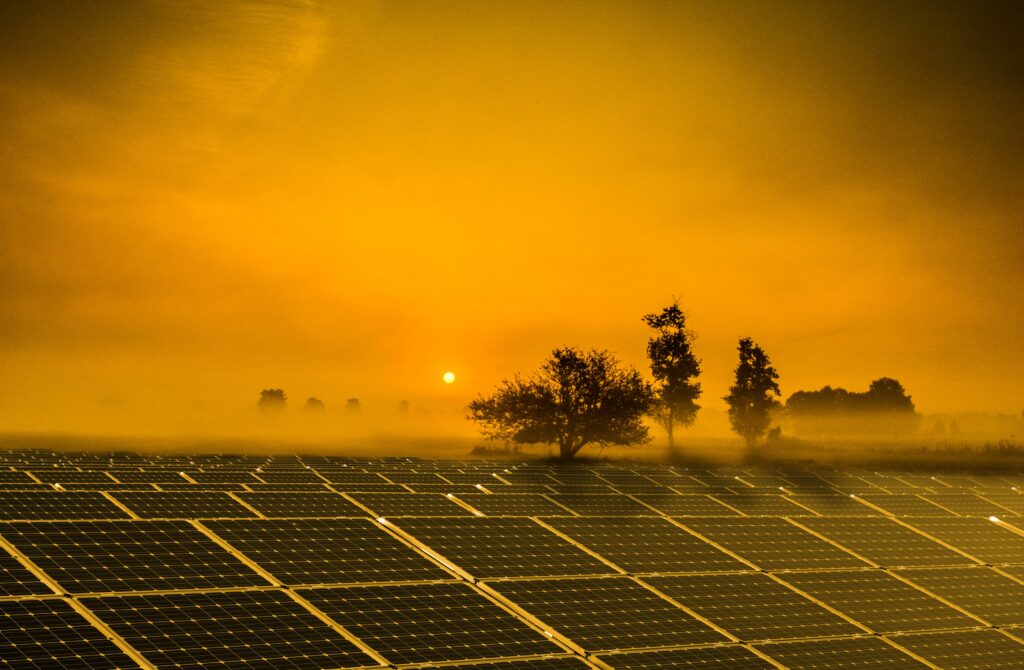
“Is solar energy worth it? Explore the compelling reasons to embrace solar power. From unlimited renewable energy to financial savings, discover why investing in solar is a sustainable choice for the future.”
Table of Contents
Introduction
The search for sustainable energy solutions has accelerated at a never-before-seen rate as the globe struggles to address the mounting issues of climate change, resource depletion, and environmental degradation. Solar energy has emerged as a top competitor among the available choices, providing a plethora of advantages that go far beyond merely lowering carbon emissions. We will go into the crux of the issue in this in-depth investigation: Is solar energy worthwhile? We hope to clarify why embracing solar power is not only a wise choice but also a crucial step towards a cleaner and more promising future by looking at its many benefits.
1. Unlimited and Renewable Energy Source

The base of solar energy in an endlessly renewable source, the sun, lies at the heart of its attractiveness. The sun generates an unimaginable quantity of energy every day, greatly beyond the energy requirements of our whole globe, unlike fossil fuels, which are limited and quickly running out. We have the power to completely alter the energy landscape by using solar panels to capture even a small portion of this limitless energy. This transition to renewable energy not only lessens our reliance on finite resources but also ushers in a period of reliable, sustainable electricity production.
Photovoltaic cells are frequently used in solar energy systems, which are intended to turn sunlight directly into electricity. These silicon-based cells absorb photons from the sun and release electrons, which produces an electrical current. Solar panels are able to produce power in a clean and effective manner thanks to this clever method. Additionally, improvements in solar technology are enhancing price and efficiency, making solar energy a more practical and alluring alternative for households, businesses, and governments alike.
2. Financial Benefits: Substantial Reduction in Energy Bills
Beyond its benefits for the environment, solar energy makes a strong business argument. One of the main inducements is the possibility for significant energy bill reductions. You may create your own power using solar panels, which reduces your dependency on traditional utility suppliers. You use less energy from the grid as a consequence, which results in cheaper monthly expenses.
It’s important to consider solar panel installation as a long-term plan, even if the initial cost may seem substantial. The accumulated energy bill savings over time may eventually equal the upfront expenditures, yielding a sizable return on investment. Solar panels’ excess energy can occasionally even be sold back to the power grid to produce an extra source of revenue.
The cost of solar panels is dropping as technology develops and economies of scale take effect, making the switch to solar energy more feasible and financially advantageous.
3. Positive Environmental Impact

The use of solar energy has significant environmental effects. In contrast to conventional energy sources like coal and oil, solar electricity doesn’t emit any greenhouse gases while it’s in use. This indicates that using solar power to generate electricity has no impact on smog, air pollution, or the acceleration of climate change. You may actively contribute to lowering your carbon footprint, preventing global warming, and promoting better air quality by choosing solar energy.
Furthermore, using and extracting fossil fuels has significant negative effects on the ecosystem. These resources may be mined or drilled for, which may result in habitat loss, water pollution, and irreparable ecological harm. By switching to solar energy, you can lessen the environmental damage caused by resource exploitation while also preserving sensitive ecosystems. In essence, utilizing solar energy represents a clear commitment to a planet that is healthier and more sustainable.
4. Low Maintenance and Longevity
Solar panels are praised for their longevity and low need for maintenance. Solar panels have a comparatively straightforward design in contrast to complicated machinery with sophisticated moving parts. Because there are no moving parts, there are less chances for mechanical failure. Solar panels last longer than many other types of energy systems as a result.
Usually, all that is needed to maintain maximum effectiveness is the periodic cleaning. Cleaning the panels of dirt, debris, and accumulated dust makes sure they can catch sunlight as efficiently as possible. Many solar panel manufacturers provide warranties ranging from 20 to 25 years, which is evidence of their faith in the dependability and durability of the technology. This implies that solar panels may provide clean energy for decades after they are placed with no maintenance.
5. Energy Independence and Resilience
In the context of solar energy, the idea of energy independence has additional significance. As a result of the dependence of traditional energy sources on centralized power grids, we are susceptible to supply shortages, outages, and price changes. Through encouraging some degree of energy independence, solar energy provides a special option.
Installing solar panels ultimately transforms you into your own energy supplier. Your solar system can keep producing power in times of grid outages or other calamities, meeting all of your basic needs. Particularly during natural catastrophes or unanticipated circumstances that might disrupt conventional power supplies, this energy resilience is crucial. Users of solar energy contribute to a decentralized energy network, which improves the grid’s overall stability.
Conclusion
In the context of solar energy, the idea of energy independence has additional significance. As a result of the dependence of traditional energy sources on centralized power grids, we are susceptible to supply shortages, outages, and price changes. Through encouraging some degree of energy independence, solar energy provides a special option.
Installing solar panels ultimately transforms you into your own energy supplier. Your solar system can keep producing power in times of grid outages or other calamities, meeting all of your basic needs. Particularly during natural catastrophes or unanticipated circumstances that might disrupt conventional power supplies, this energy resilience is crucial. Users of solar energy contribute to a decentralized energy network, which improves the grid’s overall stability.
Making the decision to use solar energy is surely a strong and revolutionary step on the path to a sustainable future. By utilizing this technology, you improve your well-being as well as the wellbeing of the world and future generations. The next time you consider the value of solar energy, keep in mind that it’s a step toward a world that is sustainable, lively, and ready for tomorrow’s problems rather than just an investment.
Frequently Asked Questions(FAQ)
1. Is Solar Energy Reliable for Consistent Power Supply?
Absolutely. Solar energy systems are designed to provide a reliable power supply. While it’s true that solar panels generate electricity when exposed to sunlight, advancements in technology have made solar panels more efficient at capturing even diffused sunlight on cloudy days. Additionally, battery storage solutions allow you to store excess energy generated during sunny periods for use during the night or overcast days. This ensures a consistent power supply, making solar energy a dependable choice for residential and commercial needs.
2. What Are the Financial Benefits of Switching to Solar Energy?
Switching to solar energy offers significant financial advantages. While the initial investment in solar panels and installation might seem substantial, the long-term savings are remarkable. By generating your electricity, you reduce your reliance on the grid, resulting in lower energy bills. Over time, these savings can offset the initial costs and potentially lead to surplus energy that you can sell back to the grid. Government incentives, tax credits, and rebates further enhance the financial appeal of solar energy, making it a wise investment.
3. How Does Solar Energy Impact the Environment?
Solar energy has a positive environmental impact. Unlike fossil fuels, solar power does not emit greenhouse gases or pollutants during operation. This translates to reduced air pollution, cleaner air quality, and a smaller carbon footprint. By choosing solar energy, you actively contribute to mitigating climate change and preserving ecosystems. Additionally, the extraction and transportation of fossil fuels are associated with environmental damage, while solar panels have a lower environmental footprint over their lifetime.
4. Are Solar Panels Low Maintenance?
Yes, solar panels are known for their low maintenance requirements. Their lack of moving parts lowers the possibility of mechanical failure. Regular cleaning to remove dirt, dust, and debris is usually sufficient to ensure optimal performance. Most solar panels come with durable materials that can withstand various weather conditions. Additionally, solar panel manufacturers often offer warranties ranging from 20 to 25 years, showcasing their confidence in the technology’s longevity.
5. Can Solar Energy Provide Power During Grid Outages?
Yes, solar energy can provide power during grid outages through battery storage systems. You may store surplus energy produced by your solar energy system and use it when the grid is down by combining battery storage with your solar energy system. This is particularly beneficial during natural disasters or emergencies when traditional power sources are compromised. Battery technology continues to advance, making it easier and more efficient to store and use solar-generated energy when needed.

